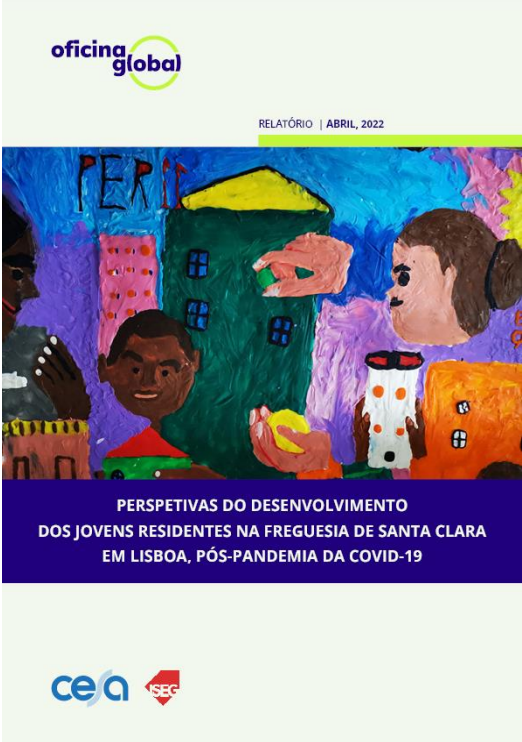Publications
For submission of articles or Working Papers to CEsA, please send an email to:
comunicacao@cesa.iseg.ulisboa.pt
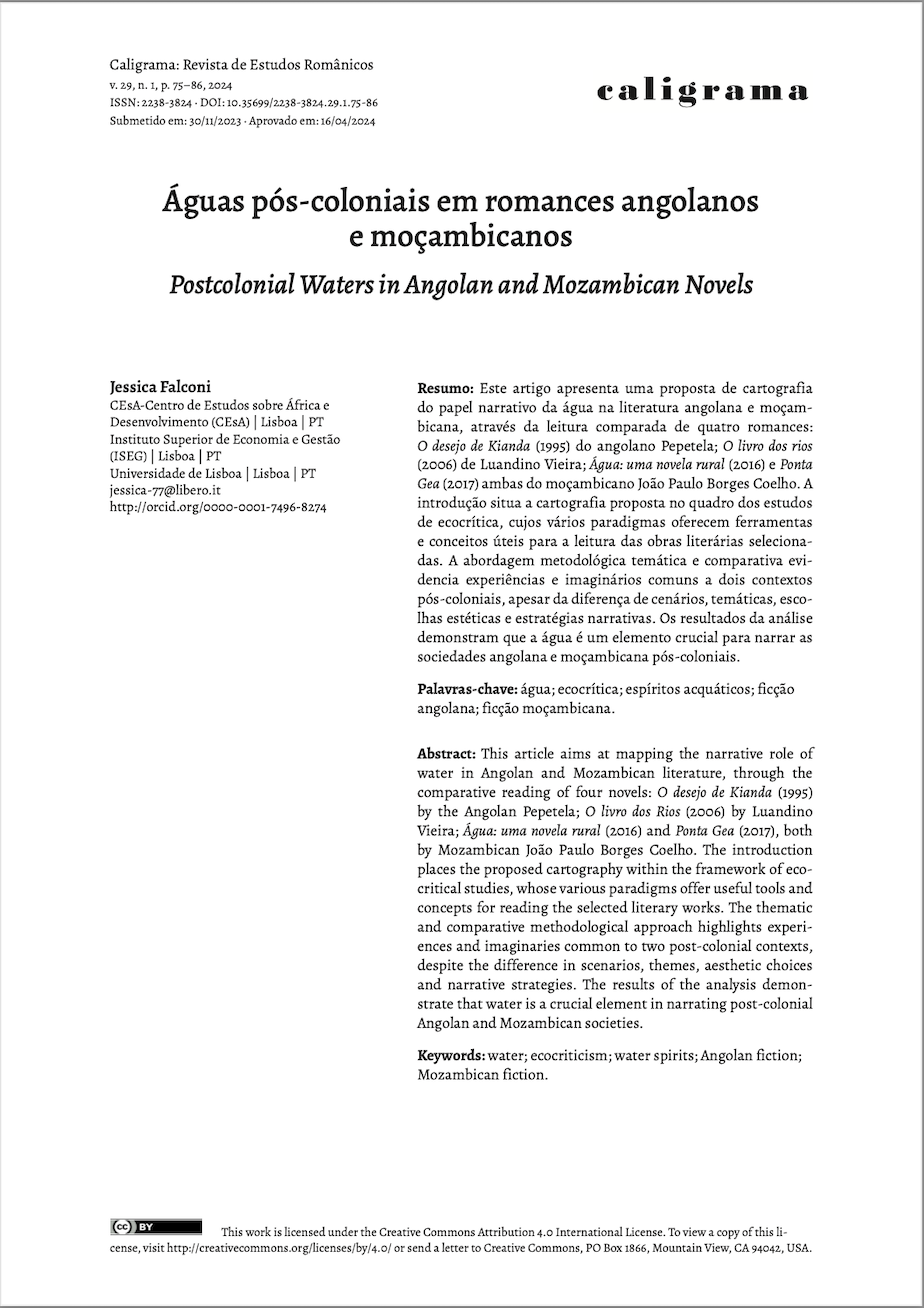
Águas Pós-coloniais em Romances Angolanos e Moçambicanos
Abstract:
This article aims at mapping the narrative role of water in Angolan and Mozambican literature, through the comparative reading of four novels: O desejo de Kianda (1995) by the Angolan Pepetela; O livro dos Rios (2006) by Luandino Vieira; Água: uma novela rural (2016) and Ponta Gea (2017), both by Mozambican João Paulo Borges Coelho. The introduction places the proposed cartography within the framework of ecocritical studies, whose various paradigms offer useful tools and concepts for reading the selected literary works. The thematic and comparative methodological approach highlights experiences and imaginaries common to two post-colonial contexts, despite the difference in scenarios, themes, aesthetic choices and narrative strategies. The results of the analysis demonstrate that water is a crucial element in narrating post-colonial Angolan and Mozambican societies.
Cite this article:
Falconi, Jessica (2024). “Águas pós-coloniais em romances angolanos e moçambicanos”. Caligrama: Revista de Estudos Românicos, 29(1):75-86
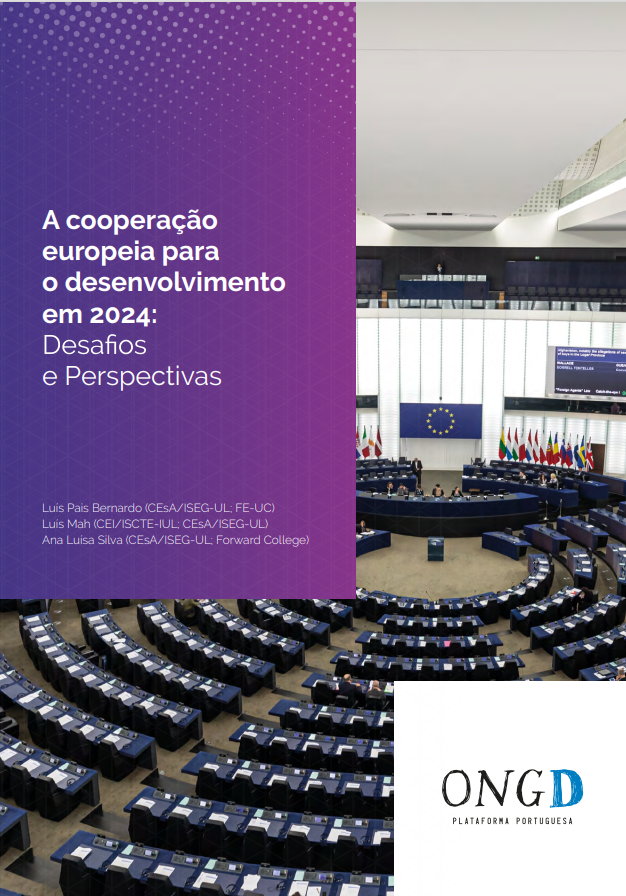
A Cooperação Europeia para o Desenvolvimento em 2024: Desafios e perspectivas
Abstract:
In a year of European Parliament (EP) elections, and amid growing global uncertainty, the study “European Development Cooperation in 2024: Challenges and Perspectives” was created following the publication “The Future of International Development Cooperation: Fragmentation, Adaptation, and Innovation in a Changing World” (2021). In this study, we outline the latest developments in the European Union’s (EU) international development cooperation (IDC) at the institutional and policy levels, highlighting the role of the European Parliament. We also examine the relationship between Portuguese IDC and its European counterpart, emphasizing the centrality of partner countries in the Portuguese-Speaking African Countries and Timor-Leste (PALOP-TL) and the role of civil society. We conclude with reflections on the implications for European cooperation, Portuguese cooperation, and civil society given the increasing importance of geopolitics in the current global context, the political-institutional transformations observed in European IDC, and the likely configuration of the EP for the new legislature, where it is expected that political forces opposing development cooperation will be strengthened.
Cite this ebook:
Bernardo, Luís Pais, Luís Mah e Ana Luísa Silva (2024). A cooperação europeia para o desenvolvimento em 2024 : desafios e perspectivas. Lisboa: Plataforma Portuguesa das ONGD
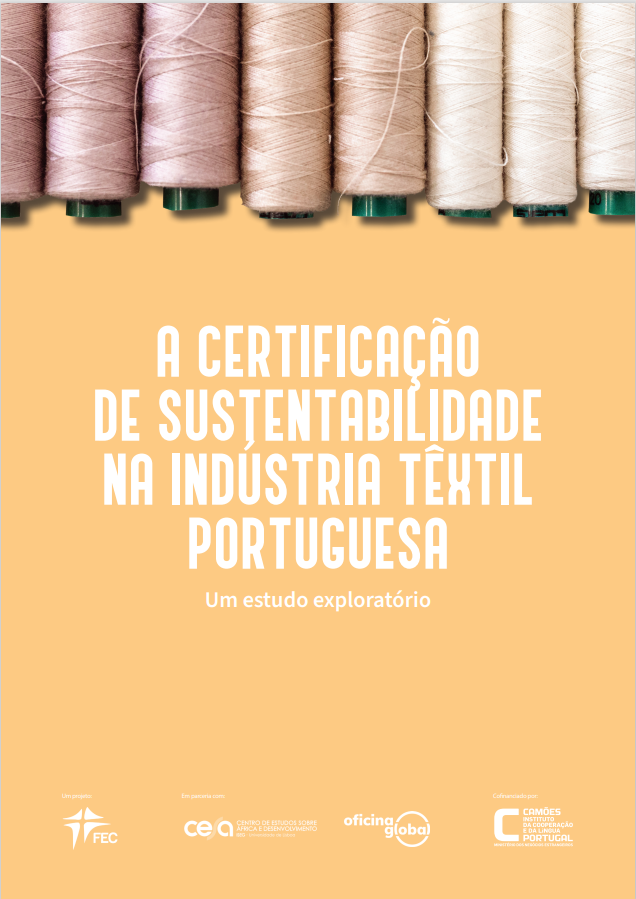
A certificação de sustentabilidade na Indústria Têxtil Portuguesa: um estudo exploratório
Abstract:
This study analyzes sustainability certification in the Portuguese textile industry. The main objective is to map the current landscape of sustainable practices adopted by this crucial sector of the Portuguese economy, evaluating the implications, challenges, and benefits of certification in the contemporary economic and environmental context. We aim to understand how sustainability certifications can serve as a strategic tool to boost the competitiveness of Portuguese companies in the global market, responding to the growing demand for ethical and environmentally conscious products.
The methodology employed in this study involves a review of the existing literature on sustainability in the textile industry. Essentially, it is a hybrid and comparative analysis, utilizing the complete universe of certified Portuguese textile companies. While this focused approach does not answer all questions, it allows this study to take a small step towards research committed to supporting companies that, despite clear risks and costs, choose to invest in sustainability. It also addresses the societal pressure that can and should be exerted on legislators to implement stronger regulatory frameworks and on companies that decide not to invest in sustainability.
This is a small step we hope will lead to further research efforts. We offer a perspective on the role of sustainability certification as a competitive differentiator for the Portuguese textile industry. The study emphasizes the growing importance of sustainability as a selection criterion for consumers and international business partners, reinforcing the need for Portuguese companies to continue investing in sustainable practices and obtaining certifications that validate their efforts. The study also presents and discusses recommendations for future policies and strategies, aiming to strengthen Portugal’s position as a leader in sustainable textile production on the global stage.
Cite this ebook:
Bernardo, Luís Pais (2024). A certificação de sustentabilidade na Indústria Têxtil Portuguesa : um estudo exploratório. Lisboa: Oficina Global.
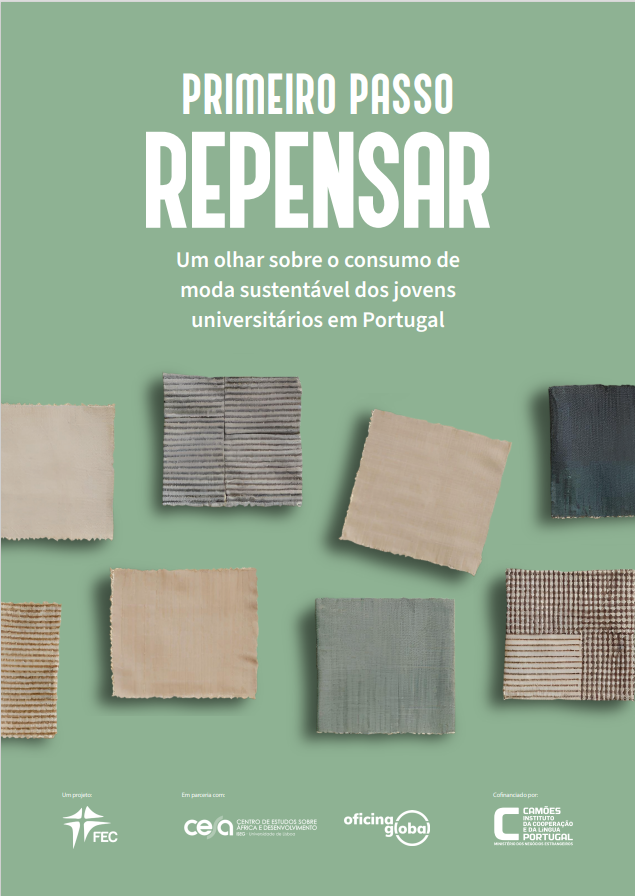
Primeiro Passo Repensar: Um olhar sobre o consumo de moda sustentável dos jovens universitários em Portugal
Abstract:
Sustainable fashion consumption involves conscious choices in purchasing, using/maintaining, and disposing of each clothing item. Therefore, it is important to Rethink, Reject, Reduce, Repair, Reuse, and Recycle. This study aimed to understand the behaviors and environmental awareness of university students living in Portugal during the three main phases of fashion consumption. An online questionnaire survey was conducted among 271 university students aged 18 to 26. The survey was open for responses from June 15 to July 24, 2023.
Cite this ebook:
Silva, Ana Luísa e Renata Assis (2024). Primeiro passo repensar: um olhar sobre o consumo de moda sustentável dos jovens universitários em Portugal. Lisboa: FEC | Fundação Fé e Cooperação e CEsA/ISEG-UL.
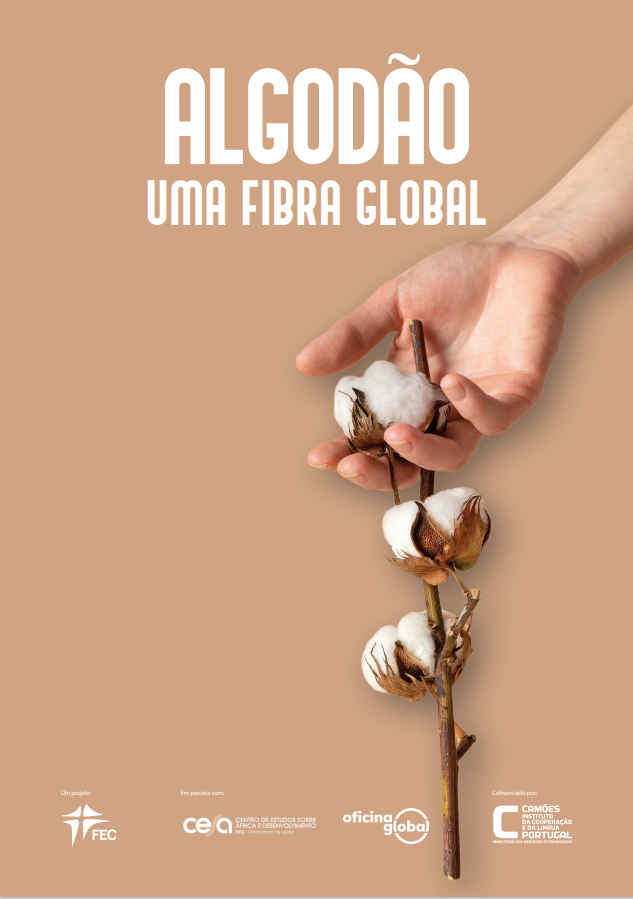
Algodão, uma fibra global
Abstract:
Cotton doesn’t lie. This well-known idiom in Portugal highlights how the most important natural fiber — both historically and commercially — has woven itself into our lives. Yet, while cotton doesn’t deceive, it does conceal. It’s more than just a fiber; it’s an entire global industry. It shapes production and consumption patterns, directly impacting the lives of millions worldwide. Cotton influences the fate of soils and water sources and significantly affects the environment. It encompasses agriculture, fashion, and high technology. Cotton has a complex and often troubling history: it can be sweet, but it’s also bitter. Its soft touch belies the complexity of its life cycle, which spans from cotton fields in Burkina Faso to garment factories in Bangladesh, fashion runways in Milan, and algorithms in New York. This distribution isn’t arbitrary: the value gap —evident in the income disparity between a field worker in Burkina Faso, a factory manager in Bangladesh, and a top designer in Milan — illustrates global inequalities. Cotton connects these diverse landscapes and activities. This briefing is for anyone who wants to understand the fashion they wear and the fibers they choose. It’s also for decision-makers regulating cotton production and consumption. Responsible consumption is a key step in altering economic structures, but it’s rarely enough on its own. Our aim is clear: meaningful action requires clarity, knowledge, and information.
Cite this ebook:
Bernardo, Luís Pais (2023). Algodão, uma fibra global. Lisboa: FEC | Fundação Fé e Cooperação.
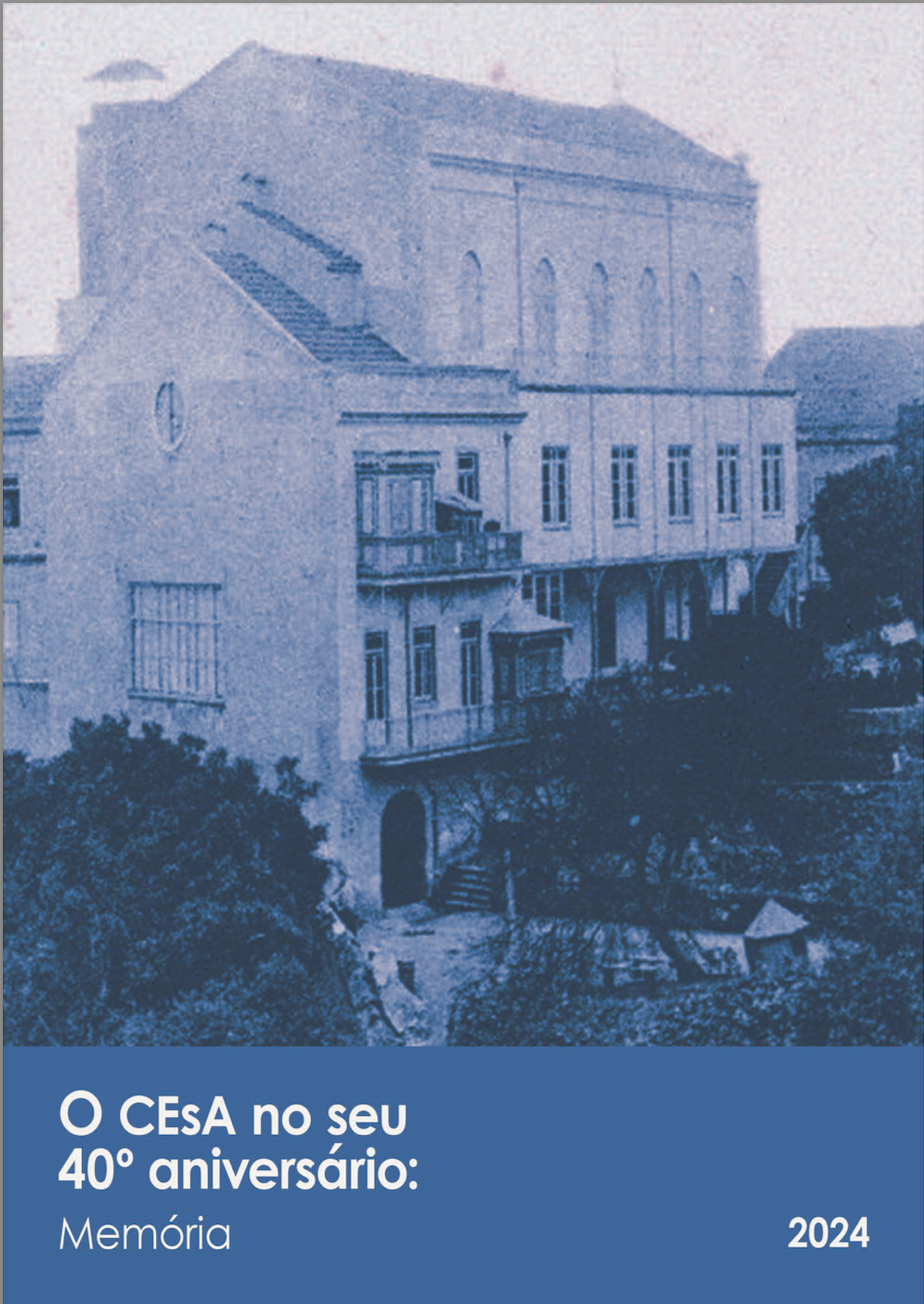
Brochure “O CEsA no seu 40º aniversário: Memória”
Abstract:
The Centre for African and Development Studies (CEsA) of the Lisbon School of Economics and Management, University of Lisbon (ISEG-ULisboa), is a research centre with its own legal personality, founded in 1983 by ISEG faculty members. It currently has two major research lines: 1) Economics, Development, and International Cooperation, and 2) History, Cultures, and Identities. The main funding institution for CEsA is the Foundation for Science and Technology (FCT). Over the years, entities such as the Portugal-Africa Foundation, the Calouste Gulbenkian Foundation, the Camões Institute, I.P., the Caixa Geral de Depósitos, ISEG, the European Union, the UNDP – United Nations Development Programme, among others, have supported various activities and projects. The geographical scope of this activity has mostly been Sub-Saharan Africa with historical ties to Portugal, while not neglecting Asia, particularly East Timor, and Brazil. The celebration of CEsA’s 40th anniversary and the 30th anniversary of the creation of the Master’s in Development and International Cooperation at ISEG offers us a unique opportunity to reflect on the trajectory and legacy in the field of research in Portugal.
Cite this Brochure:
CEsA (2024). “O CEsA no seu 40º Aniversário: Memória”. ISEG/CEsA – Centro de Estudos sobre África e Desenvolvimento.
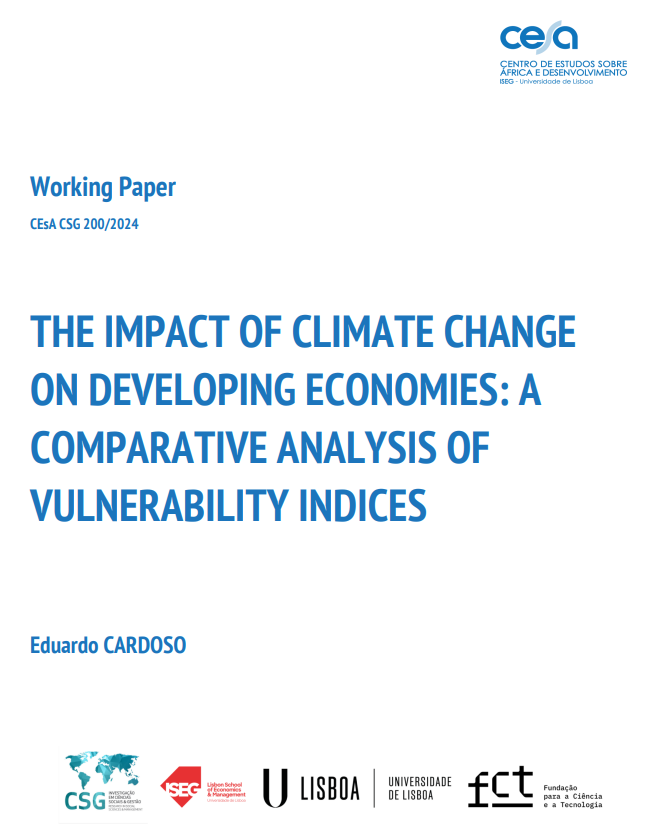
Working Paper 200/2024: The Impact of Climate Change on Developing Economies: A comparative analysis of vulnerability indices
Abstract:
In order to make informed decisions on climate finance and policies, there is an increasing need to develop an index to assess countries’ vulnerability to climate change. However, differing concepts and methodologies have led to varied views on which countries are most vulnerable and deserve more international financial support. This Working Paper examines whether key indices in climate science consistently classify countries’ vulnerability to climate disruption. It begins by reviewing literature on the impact of climate change on developing countries, followed by a comparative analysis of the EVI, ND-GAIN, INFORM, and WRI indices from 2014 to 2020. The findings indicate that while these indices are valuable for understanding and monitoring vulnerability, their differing components lead to divergent results. This research underscores the importance of a holistic approach to vulnerability assessment and calls for informed selection of indices based on specific objectives and contexts.
Cite this Working Paper:
Cardoso, Eduardo (2024). “The Impact of Climate Change on Developing Economies: A comparative analysis of vulnerability indices”. CEsA/CSG – Documentos de Trabalho nº 200/2024.

Disputas de e por Espaços Político-identitários: O rap e os movimentos sociais em Cabo Verde
Abstract:
Independent since 1975 and democratic since 1991, Cabo Verde has not escaped the waves of urban protests that plagued African capitals in the second half of the 2000s. Rap, perceived as the new expression of protest by urban youth, consolidates itself in the 2000s as one of the main actors in the Cape Verdean political scene and becomes an important vehicle for mobilizing and building an urban culture of resistance, amplifying these issues. This article, based on an ethnographic research in the cities of Praia (Santiago Island) and Mindelo (São Vicente Island), seeks to answer three questions: 1) on how rap has shown the identity, social and urban contradictions; 2) how it has articulated with other types of social movements; 3) what is the place of women in rap and street politics?
Cite this paper:
Lima, R.W. and Robalo, A. 2024. 7 – Disputas de e por espaços político-identitários: o rap e os movimentos sociais em Cabo Verde. Africa Development. 48, 3 (May 2024). DOI: https://doi.org/10.57054/ad.v48i3.5321.
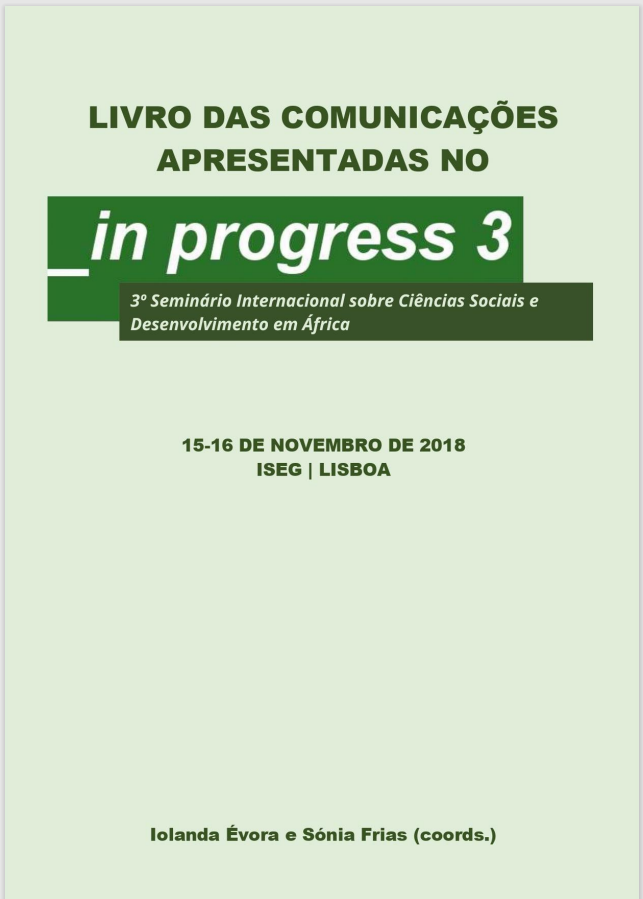
Book of Papers Presented at the In Progress 3 Seminar
Abstract:
This third edition of In Progress, Seminar on Social Sciences and Development in Africa brings together works by researchers and postgraduate students whose study and research theme is contemporary Africa and its development, supported by scientific currents that stimulate new approaches beyond the “development”, exploring the notions of “well-being” or “good living” and remaining close to currents of thought and debates between Africa, Asia and Latin America. The texts include themes such as: fieldwork: practical, theoretical and methodological issues; politics, civil society dynamics, development; culture, thought and change; strategies for cooperation and development; and populations, mobility and well-being. The second part of this work contains the reflections of the speakers invited to the In Progress 3 seminar, which include both a critical perspective on the dominant discourses and methodologies in the field of development policies linked to mobilities, economy and identities, as well as the contribution of financial growth for economic growth and several of the issues to be taken into account in discussions on economic sustainability, taking the example of SADC member countries. The final conference refers to the times and questions that are important to retain and what is important to reflect on in the context of social and human sciences, in particular, when the debate is about the (neo)colonial perspective and contemporary global challenges for African Studies.
Cite this e-book:
Évora, Iolanda e Sónia Frias (coord). 2024. Livro das Comunicações Apresentadas no In Progress 3 com Revisão por Pares : 15 a 16 de Novembro de 2018 no ISEG/ULisboa. Lisboa: ISEG – CEsA
